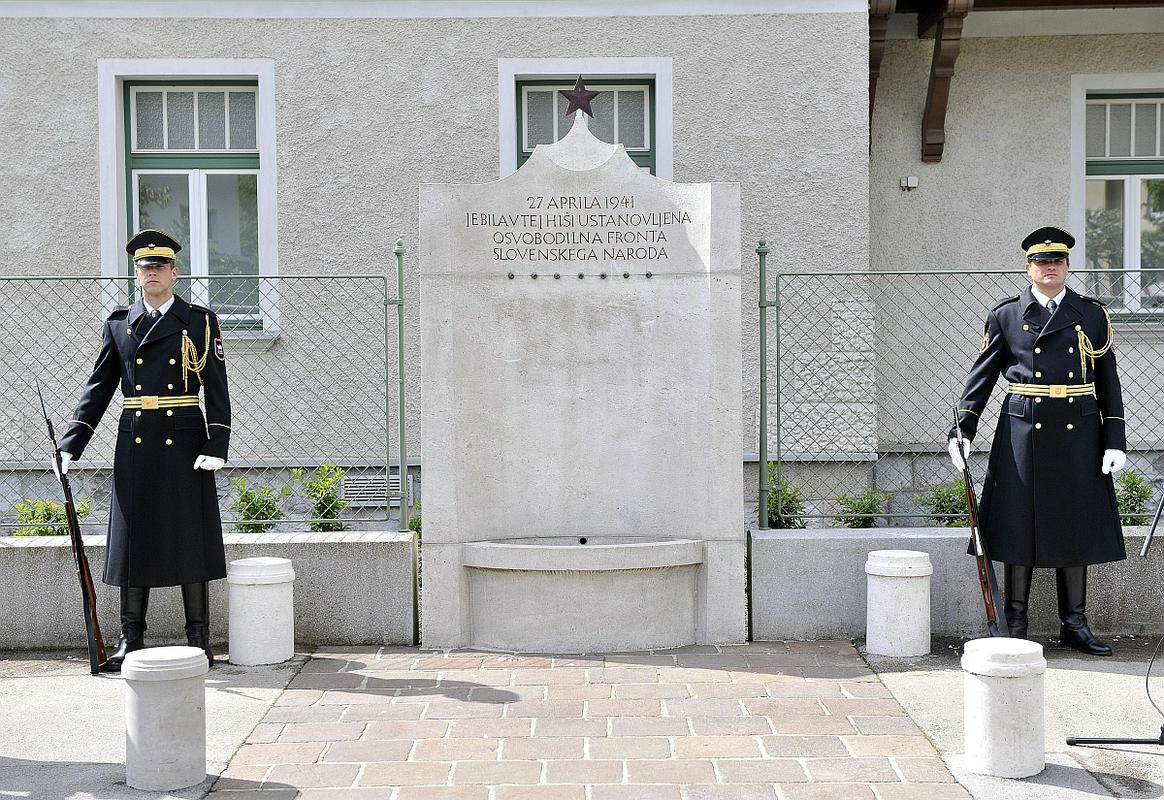
More than 100 visitors flocked to the Presidential Palace on Wednesday. Special guests included senior representatives from the Association of the War Veterans of the National Liberation Struggle of Slovenia. Earlier that day, the veterans and Pahor laid wreaths at a monument in Ljubljana that remembers the Liberation Front.
Pahor thanked the veterans, saying he wished that the courage of the generation that saved the Slovene nation during WWII would never be forgotten. He stressed that nothing could reduce the significance of their contribution to the fight against the axis of evil in WWII when the Allies defeated the Axis powers. He added that their resistance enabled the Slovene nation to determine its own destiny.
Pahor also talked about the difference in attitudes towards the holiday. He said that those who are focussed on the significance of the Partisan movement view April 27 as an important patriotic holiday that carries a positive message; however, those who see World War II and the post-war period as a time of civil war do not look forward to this holiday. He believes that the members of the generation which witnessed the horrific events that took place during and after WWII are unlikely to change their opinions – which is understandable from a purely human point of view. However, he stressed that as a community – and as a nation celebrating 25 years of independence – we need to ask ourselves how these two views can coexist in the future so that we can live together in harmony, and realize that we only have one country and one homeland – and not two.
“If we citizens can build on what is common to all of us and respect each other’s differences – even when it comes to our recent national history – then there is no doubt that even in our most fateful moments we can act as one,” Pahor stressed in his address.


































































